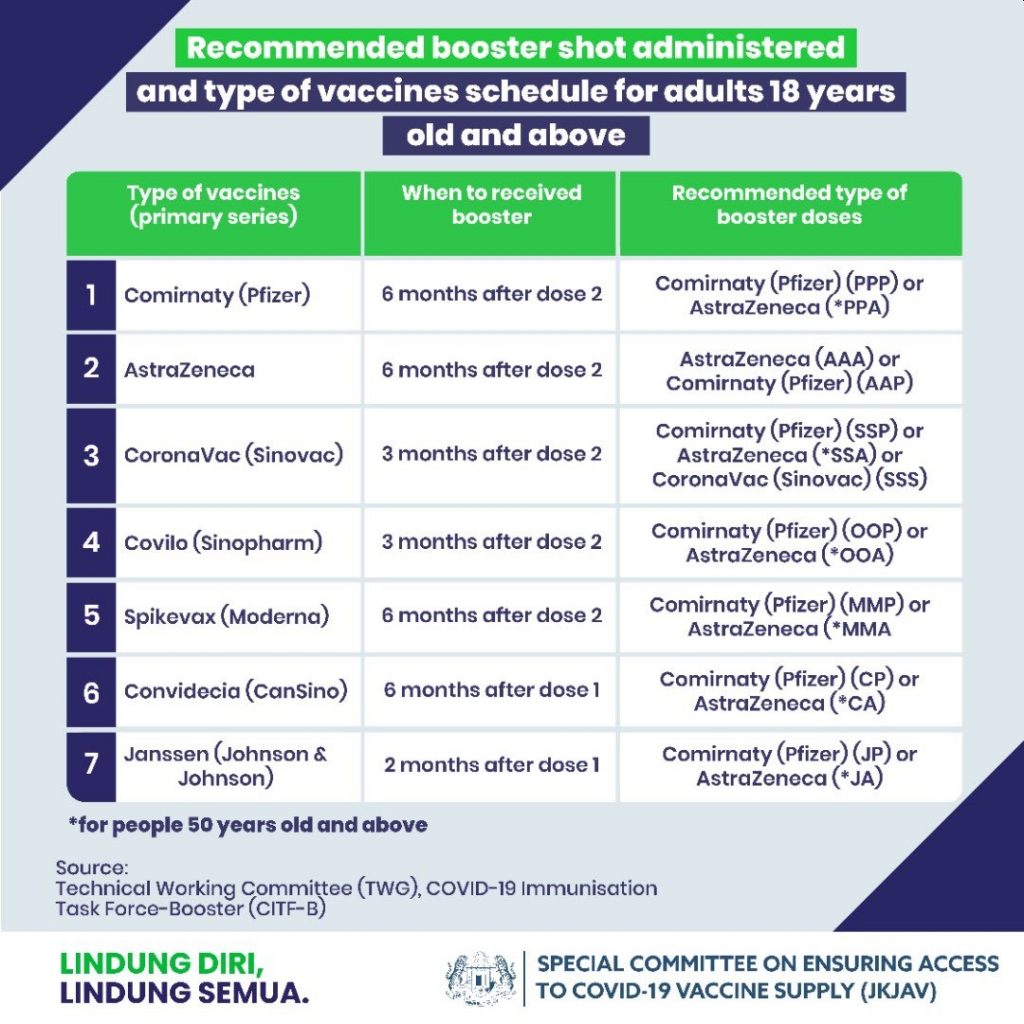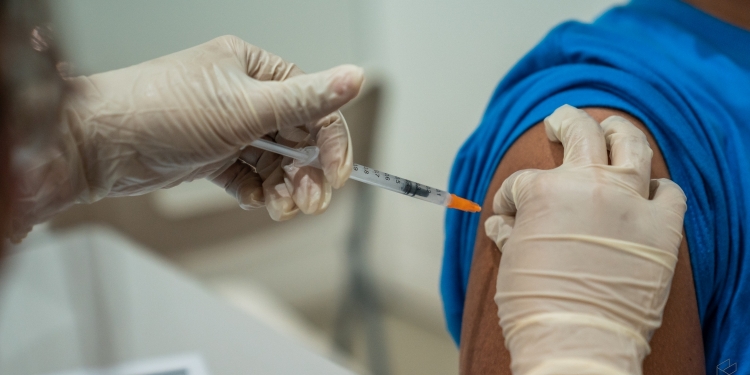Health Minister Khairy Jamaluddin has revealed that a very small number of individuals had experienced serious side effects after getting their COVID-19 booster vaccine jab. During an interview on Astro Awani yesterday evening, he said there are only 11 cases (0.00065%) that are categorised as serious out of over 1.7 million Pfizer booster doses administered in the country. He said the serious cases include allergies and at the moment, didn’t require to be admitted to hospital.
Khairy said, based on the data, the rate of side effects for the booster shots is similar to the first two doses of COVID-19 vaccines and there aren’t any significant differences. He said if the data showed a significant increase of adverse side effects following immunisation with boosters, the ministry would have not continued with the booster programme. He said the safety profile of the booster is similar to the primary series.
Director of the Institute for Clinical Research (ICR), Dr Kalaiarasu M Periasamy said most side effects reported after getting the jab include soreness or pain at the injection site, nausea, and fatigue for a few days. There are some cases of lymphadenopathy among the Pfizer vaccine recipients for 2 to 3 days, where the lymph nodes under the arm are swollen. He added that the side effects are manageable and it isn’t something that people shouldn’t worry too much about.
Khairy also shared concerns that an average of 40-45% of people didn’t turn up for their COVID-19 vaccine booster appointment. Some of the reasons include the lack of understanding of the importance of getting the booster shot and he has requested his ministry and health experts to come forward to the media to create more awareness.
Another factor is the fear of mixing vaccines, especially for individuals fully vaccinated with Sinovac being offered Pfizer as their booster jab. Khairy said he has used himself as an example as he has also gotten a Pfizer booster after receiving two doses of the Sinovac vaccine.
Khairy said during the immunisation programme for the primary series (first two doses), the vaccine hesitancy dropped during the surge of the COVID-19 Delta variant. People were demanding to get vaccinated as the number of new COVID-19 daily cases were increasing around June and July. He said perhaps Malaysia is now a victim of its own success as the number of cases has declined and most people have started to get complacent seeing that the hospital situation has improved. He reminded the people not to take the situation lightly as with the emergence of the new Omicron variant, boosters are highly recommended for optimal protection.

As announced by the Ministry of Health recently, the Drug Control Authority has approved Sinovac and AstraZeneca vaccines in addition to Pfizer. Pfizer is still the recommended booster for Sinovac recipients, however, individuals fully vaccinated with Sinovac are able to request Sinovac as their booster at their vaccination centre. Individuals fully vaccinated with AstraZeneca are recommended to get AstraZeneca as their booster, but they are also permitted to receive Pfizer.
Related reading
- Sinovac booster available for individuals fully vaccinated with Sinovac, boosters now rolling out to all adults in Malaysia
- COVID-19 Vaccine: Here’s how to register yourself on the waiting list at private health facilities
- Children under 12 in Malaysia may have to wait over 6 months for their COVID-19 vaccine jab
- COVID-19: Can we afford to delay vaccinating our 5-11 year old children?








